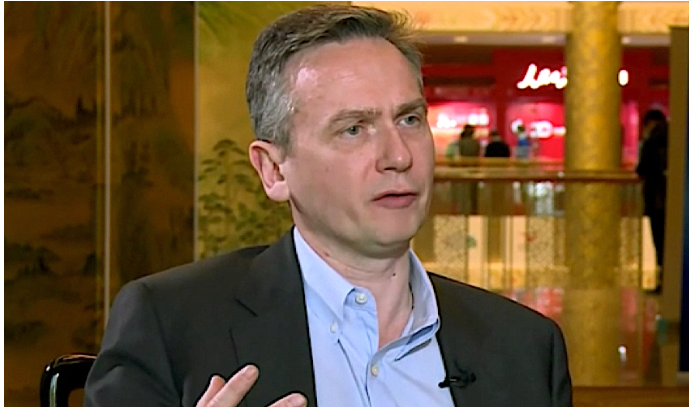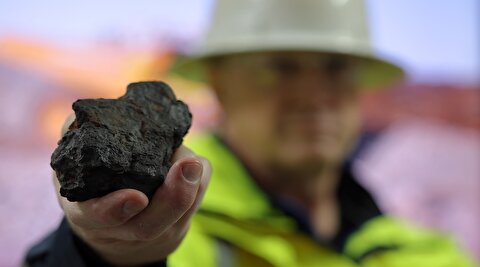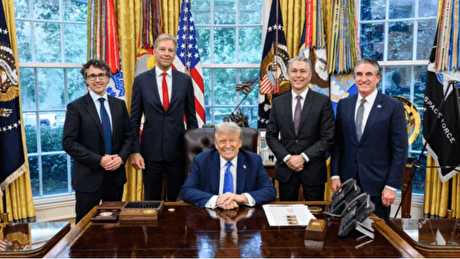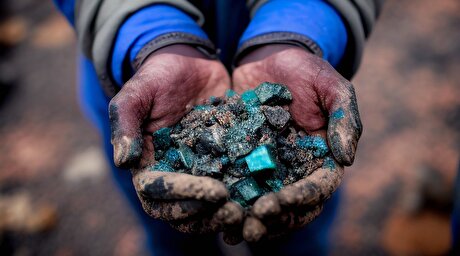
Rio Tinto didn’t inform cave blast owners of other mine plans

Rio Tinto CEO Jean-Sébastien Jacques faced an Australian Senate inquiry after the miner in late May legally destroyed the sacred caves which sat atop a high grade ore body it planned to mine, against the wishes of the traditional owners.
The destruction of the sites, which showed evidence of 46,000 years of human habitation, fuelled a public furore and became a facet of Black Lives Matter protests in Australia, sparking the parliamentary inquiry.
Rio Tinto CEO Jean-Sébastien Jacques
Jacques, who apologised at the start of the hearing for the destruction of the site, said the company had four options for its mine plan and chose the most valuable one, which gave it access to $135 million of ore.
“The difference between option 4 and the other three options was in the vicinity of 8 million tonnes of high grade iron ore. The economic value at the time of the decision … was around $135 million of net present value,” he said.
Jacques also confirmed that the Puutu Kunti, Kurama and Pinikura (PKKP) people were not made aware that the iron ore giant had considered three other mine plans, but were only presented with the option that would destroy the caves.
“How could it be possibly be seen that they were given free, prior and informed consent under those circumstances?” Senator Warren Snowden asked.
Rio had said in a submission to the inquiry that it believed it had obtained free, prior and informed consent from the PKKP, a United Nations-backed principle on the rights of indigenous peoples that the miner has pledged to uphold.
Jacques told the inquiry there was no doubt the company could have made better decisions.
“This is a defining moment for Rio Tinto. We are absolutely committed to learn and change,” he said.
He stopped short of explicitly committing to absolve traditional owner groups from historic agreements that restrict them from publicly objecting to mining development on their land.
Critics say such agreements, which are widespread in Western Australia, mean traditional owners are unable to raise concerns when government officials call for public objections to inform their decisions over whether to allow a site to be destroyed.
Rio Tinto, which has faced criticism from major shareholders over the blasts, is conducting its own independent board review into the incident, due to be completed in October. It has pledged to make the findings public.
The Senate inquiry chairman Warren Entsch indicated that Rio would likely be called back to a later hearing.


Barrick’s Reko Diq in line for $410M ADB backing

Trump weighs using $2 billion in CHIPS Act funding for critical minerals

Pan American locks in $2.1B takeover of MAG Silver

US adds copper, potash, silicon in critical minerals list shake-up

Trump raises stakes over Resolution Copper project with BHP, Rio Tinto CEOs at White House

Gold price gains 1% as Powell gives dovish signal

Gold boom drives rising costs for Aussie producers

Giustra-backed mining firm teams up with informal miners in Colombia

US seeks to stockpile cobalt for first time in decades

Kyrgyzstan kicks off underground gold mining at Kumtor

Kyrgyzstan kicks off underground gold mining at Kumtor

KoBold Metals granted lithium exploration rights in Congo

Freeport Indonesia to wrap up Gresik plant repairs by early September

Energy Fuels soars on Vulcan Elements partnership

Northern Dynasty sticks to proposal in battle to lift Pebble mine veto

Giustra-backed mining firm teams up with informal miners in Colombia

Critical Metals signs agreement to supply rare earth to US government-funded facility

China extends rare earth controls to imported material

Galan Lithium proceeds with $13M financing for Argentina project

Kyrgyzstan kicks off underground gold mining at Kumtor

Freeport Indonesia to wrap up Gresik plant repairs by early September

Energy Fuels soars on Vulcan Elements partnership

Northern Dynasty sticks to proposal in battle to lift Pebble mine veto

Giustra-backed mining firm teams up with informal miners in Colombia

Critical Metals signs agreement to supply rare earth to US government-funded facility

China extends rare earth controls to imported material

Galan Lithium proceeds with $13M financing for Argentina project

Silver price touches $39 as market weighs rate cut outlook

















